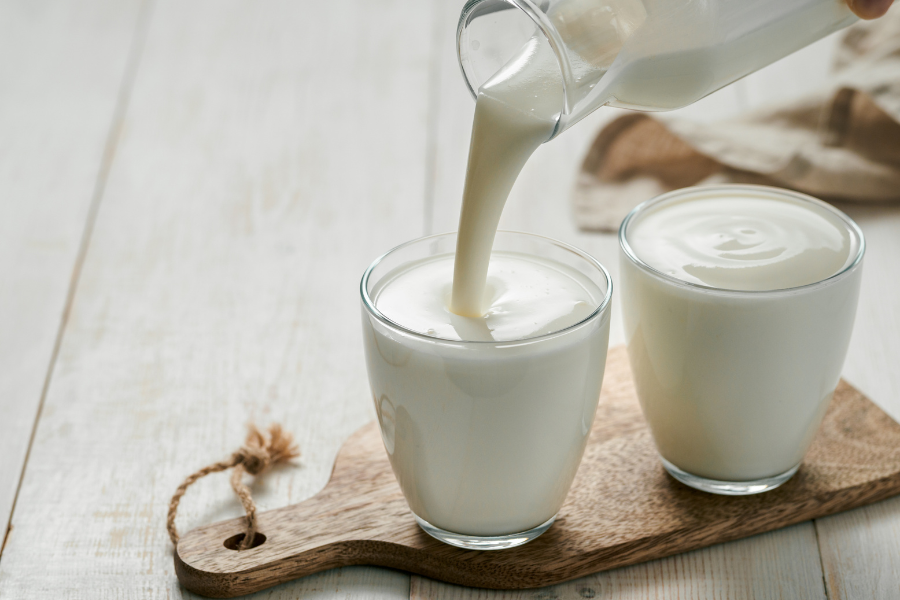The Power of Nutrition: How Diet Impacts Our Mood
In the pursuit of a happy and fulfilling life, it is crucial to recognise the profound connection between nutrition and mood.
We often underestimate the impact our diet can have on our mental well-being, focusing primarily on physical health. However, mounting scientific evidence suggests that what we eat directly affects our mood, cognition, and overall mental state. Understanding the relationship between nutrition and mood can empower us to make informed choices and cultivate a healthier, happier mind.
The Gut-Brain Axis
To comprehend how nutrition affects our mood, it is essential to recognise the intricate relationship between our gut and brain. The gut-brain axis is a bidirectional communication system between these two vital organs, where they influence and interact with each other. The gut houses trillions of bacteria that form the gut microbiota, playing a crucial role in digestion, nutrient absorption, and immune function. Emerging research suggests that the composition of these gut bacteria can impact our mood, behaviour, and mental health.
Key Nutrients for a Positive Mood:
- Omega-3 Fatty Acids: Found in fatty fish, flaxseeds, chia seeds, and walnuts, omega-3 fatty acids are known to support brain health and reduce symptoms of depression and anxiety. These essential fats play a crucial role in the structure and function of brain cells, enhancing communication between brain regions responsible for regulating mood.
- Complex Carbohydrates: Complex carbohydrates found in whole grains, legumes, fruits, and vegetables provide a steady release of glucose into the bloodstream. This helps maintain stable blood sugar levels and promotes the production of serotonin, a neurotransmitter associated with feelings of well-being and happiness.
- Antioxidants: Colorful fruits and vegetables, such as berries, spinach, and kale, are rich in antioxidants. These powerful compounds help reduce oxidative stress and inflammation in the brain, protecting against mood disorders and cognitive decline.
- B Vitamins: B vitamins, including folate (B9), vitamin B12, and vitamin B6, play a crucial role in the synthesis of neurotransmitters such as serotonin, dopamine, and norepinephrine. Good sources of B vitamins include leafy greens, legumes, eggs, and lean meats.
- Probiotics: Probiotics, found in fermented foods like yogurt, kefir, sauerkraut, and kimchi, promote a healthy gut microbiota. These beneficial bacteria produce neurotransmitters, regulate inflammation, and improve the absorption of key nutrients, influencing mood and mental well-being.
Just as a healthy diet can uplift our mood, poor nutrition can have detrimental effects on our mental state.

Fermented foods such as Kefir support a healthy gut
Diets high in refined sugars, unhealthy fats, processed foods, and artificial additives have been linked to an increased risk of depression, anxiety, and cognitive decline. Such diets can disrupt the balance of gut bacteria, trigger inflammation, and hinder the production of vital neurotransmitters.
Practical Tips for a Mood-Boosting Diet:
- Prioritise whole, unprocessed foods: Build your meals around fresh fruits, vegetables, whole grains, lean proteins, and healthy fats while minimising processed and sugary foods.
- Stay hydrated: Dehydration can contribute to fatigue and low mood, so make sure to drink enough water throughout the day.
- Balance your macronutrients: Aim for a balanced intake of carbohydrates, proteins, and fats to provide a steady source of energy and support brain health.
- Incorporate fermented foods: Add probiotic-rich foods like yogurt, kefir, or fermented vegetables to your diet to support a healthy gut microbiota.
- Limit caffeine and alcohol: Excessive consumption of caffeine and alcohol can disrupt sleep patterns, exacerbate anxiety, and negatively impact mood. Moderation is key.
- Practice mindful eating: Slow down, savor your meals, and pay attention to your body’s hunger and fullness cues. Mindful eating can help you make healthier food choices and prevent emotional eating.
- Seek professional guidance: If you have specific dietary concerns or are struggling with mood disorders, it is essential to consult a healthcare professional or registered dietitian. They can provide personalised advice and develop a tailored nutrition plan to support your mental well-being.
The link between nutrition and mood is undeniable. The food we consume serves as fuel for our bodies and minds, influencing our emotional well-being in profound ways.
By making conscious choices to prioritise nutrient-dense foods that support brain health, we can positively impact our mood, cognition, and overall mental state.
Incorporating omega-3 fatty acids, complex carbohydrates, antioxidants, B vitamins, and probiotics into our diets can promote a positive mood and enhance our resilience to stress. By embracing a holistic approach to health that recognises the power of nutrition, we can unlock the potential for a happier and more fulfilling life.
For more information on nutrition, join a live class with nutritionist Claudia Le Feuvre
Lisa Lawrenson
Latest posts by Lisa Lawrenson (see all)
- Masterclass: How to grow a thick healthy lawn - March 31, 2024
- Lawn care – dealing with moss and thatch - March 22, 2024
- A beginners guide to Artificial Intelligence and Chat GPT - February 29, 2024
- 10 minute tutorial: How to arrange supermarket lillies into a stunning floral arrangement - January 1, 2024
- 10 health changes women should watch out for after 50 - January 1, 2024





















